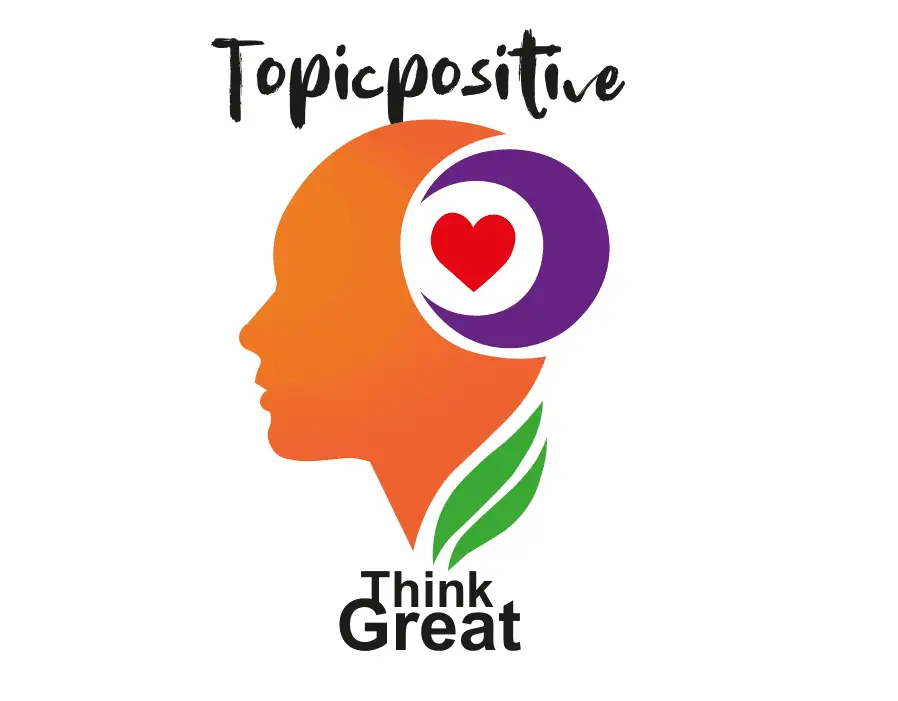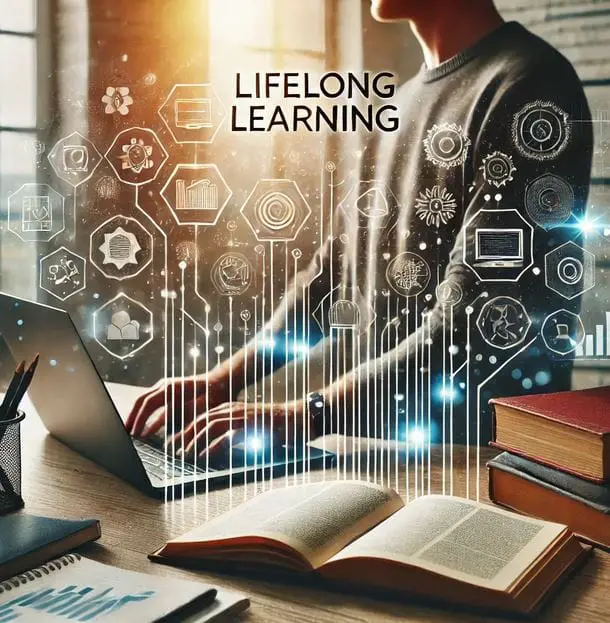Introduction
In today’s fast-paced world, career success requires more than traditional education and skills. Lifelong learning—the continuous pursuit of knowledge, skills, and competencies—has become essential for personal and professional growth. With evolving industries, technological advancements, and global competition, staying updated is no longer optional. This article will explore the reasons why lifelong learning is crucial for career success, the benefits it provides, and practical ways to incorporate it into your life.
1. The Concept of Lifelong Learning
Lifelong learning means actively seeking new skills and knowledge throughout one’s life, whether through formal education, self-directed study, or hands-on experiences. It extends beyond mandatory schooling, making it a personal commitment to growth. This mindset is about adapting, staying relevant, and embracing change.
Key Areas of Lifelong Learning:
- Professional Skills: Building expertise in your field.
- Soft Skills: Communication, critical thinking, and emotional intelligence.
- Digital Skills: Navigating new technologies and tools.
- Adaptability: Learning to pivot when needed.
Lifelong learning is both a strategy and an attitude—one that emphasizes curiosity, resilience, and open-mindedness.
2. Why Lifelong Learning Matters in the Modern Workforce
a. Rapid Technological Change
With technology evolving rapidly, skills once considered niche or advanced can quickly become essential. For instance, digital literacy, artificial intelligence, and data analysis are now critical in fields as diverse as marketing and healthcare. Lifelong learning allows individuals to remain competitive and adapt to new tools and systems.
b. Increased Job Mobility
Modern careers are rarely linear. People frequently change jobs, roles, or industries to find new opportunities. Lifelong learning provides flexibility, helping you adapt to different environments, and proving your ability to evolve.
c. Job Market Competition
The global job market has become increasingly competitive, with more professionals vying for roles across industries. Lifelong learning distinguishes you, showcasing your commitment to personal and professional development.
d. Demand for Advanced Skills
Employers now value diverse skills that go beyond a degree. Skills such as problem-solving, leadership, and adaptability are in demand. Lifelong learning builds and refines these abilities, making you a valuable asset.
3. The Benefits of Lifelong Learning for Career Success
a. Improved Job Security
Employees with a commitment to continuous learning are often more resilient in the face of layoffs or restructuring. By staying updated, they retain relevance and make themselves indispensable.
b. Enhanced Adaptability
When you regularly learn, you’re better prepared to handle unexpected challenges. Lifelong learning fosters adaptability, making transitions smoother in times of change.
c. Career Advancement Opportunities
Many employers prefer promoting individuals who show initiative in self-development. Lifelong learners are more likely to be considered for promotions, raises, and new opportunities within the organization.
d. Personal Satisfaction and Confidence
Learning not only boosts career prospects but also increases personal satisfaction. Acquiring new skills can provide a sense of accomplishment, leading to increased confidence and a positive attitude toward future challenges.
e. Broadened Professional Network
Engaging in courses, workshops, or professional communities opens doors to networking. This network can be invaluable for finding mentors, seeking advice, or discovering job opportunities.
4. Examples of Lifelong Learning in Action
Case Study 1: Adapting to Digital Marketing Changes
Digital marketing has changed drastically in recent years. Professionals who continually educate themselves on new algorithms, social media trends, and marketing tools remain effective. By keeping up-to-date, they enhance their value to employers and clients.
Case Study 2: Reskilling in Healthcare
Healthcare professionals face constant advancements in medical knowledge and technology. Doctors, nurses, and therapists who embrace lifelong learning can provide better care, stay current on best practices, and improve patient outcomes.
Case Study 3: The IT Professional Who Embraces Coding Trends
An IT professional who frequently updates their skills in programming languages, security practices, and data analysis is better equipped to handle a wide range of technical challenges, increasing their value and career opportunities.
5. Practical Steps to Start Your Lifelong Learning Journey
a. Set Clear Learning Goals
Identify skills or areas relevant to your career. Setting specific goals, like learning a programming language, improving public speaking, or understanding data analysis, gives your learning direction and purpose.
b. Utilize Online Learning Platforms
Sites like Coursera, Udemy, LinkedIn Learning, and Skillshare offer courses on various subjects. Many are affordable or even free, making them accessible for anyone.
c. Join Professional Associations
Associations provide industry-specific resources, certifications, and events that keep you informed of trends and opportunities.
d. Attend Workshops and Conferences
Workshops and conferences allow for immersive learning experiences and networking with peers in your field. They offer up-to-date information, new techniques, and best practices.
e. Read Books and Articles Regularly
Books, industry journals, and articles provide in-depth insights. Make reading a habit to keep your knowledge current and expand your expertise.
f. Find a Mentor or Join a Community
Mentors offer personalized guidance and advice based on their experience. A professional community allows for collaboration, discussion, and mutual growth.
g. Practice Self-Reflection
After learning something new, reflect on how it applies to your career. Reflection solidifies new knowledge and helps you see ways to implement it effectively.
6. Overcoming Challenges in Lifelong Learning
a. Time Constraints
Balancing work, personal life, and learning can be difficult. Breaking down learning into smaller chunks, such as 15-30 minutes a day, can make it more manageable.
b. Financial Costs
While some resources can be costly, many affordable or free options exist. Many employers also offer reimbursement for professional development or subscriptions to learning platforms.
c. Staying Motivated
Maintaining motivation can be challenging, especially for self-directed learning. Set small, attainable goals, and celebrate milestones to keep your enthusiasm high.
d. Avoiding Information Overload
Focus on one or two key areas at a time. This strategy helps you master specific skills without feeling overwhelmed by the wealth of available information.
7. Lifelong Learning Resources for Different Industries
a. Tech and IT
- Coursera and Udacity for software development, data science, and AI courses.
- Stack Overflow and GitHub for coding practice and community support.
b. Business and Management
- Harvard Business Review and LinkedIn Learning for leadership and management skills.
- Toastmasters International for public speaking and communication skills.
c. Creative and Design Fields
- Skillshare and Adobe Creative Cloud Tutorials for design, photography, and multimedia skills.
- Behance and Dribbble for portfolio building and networking.
d. Healthcare and Wellness
- Medscape and Continuing Medical Education (CME) platforms for the latest medical research and certifications.
- Coursera for courses on public health, healthcare policy, and mental health.
8. The Future of Lifelong Learning: Embracing the Trend
a. Emphasis on Microlearning
Microlearning, or learning in small, digestible portions, is becoming popular for busy professionals. This approach allows for focused learning without significant time investment.
b. Virtual and Augmented Reality Learning
Technologies like virtual and augmented reality are making it possible to learn through simulations, which is particularly useful in fields like healthcare, engineering, and design.
c. Gamification in Learning
Adding game elements to learning can make it engaging and rewarding. Gamified learning encourages participation, skill mastery, and healthy competition.
d. AI-Powered Personalized Learning
AI can tailor learning experiences based on an individual’s pace and knowledge level, offering targeted content and adaptive learning paths for maximum efficiency.
Conclusion: Invest in Lifelong Learning for Lasting Career Success
Lifelong learning is more than a career strategy; it’s a personal commitment to growth, adaptability, and resilience. By dedicating time to learning and self-improvement, you stay relevant, adaptable, and confident in an ever-changing world. Start small, set clear goals, and embrace a growth mindset—your future self and career will thank you for it.

